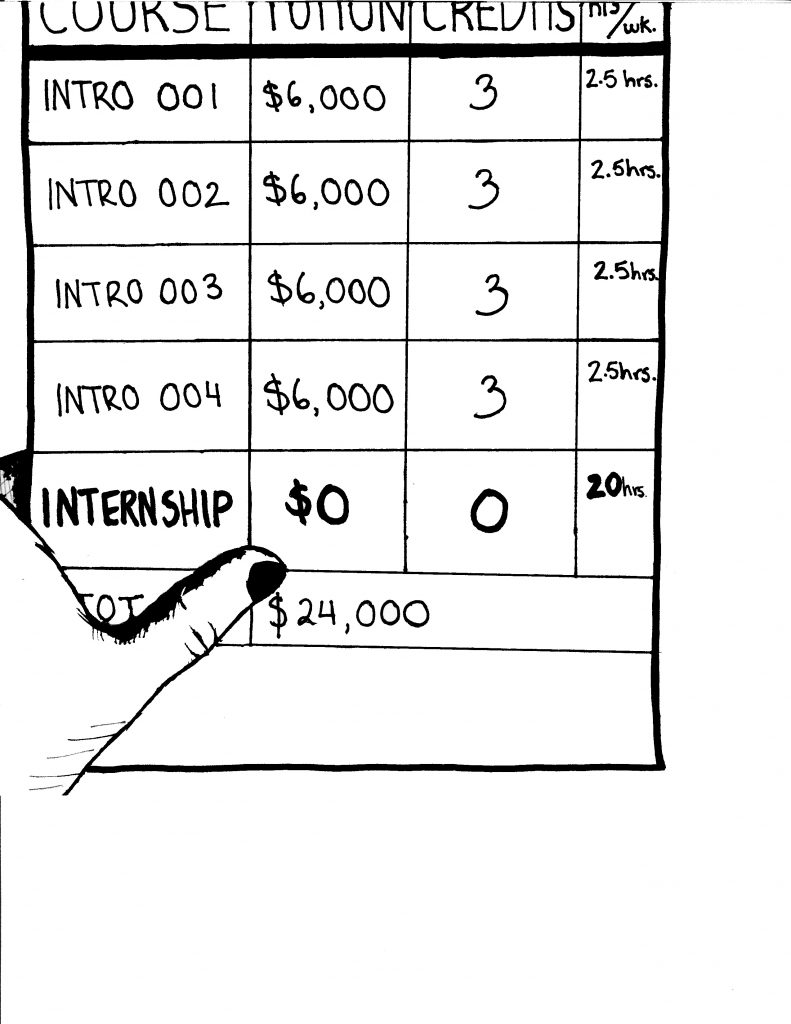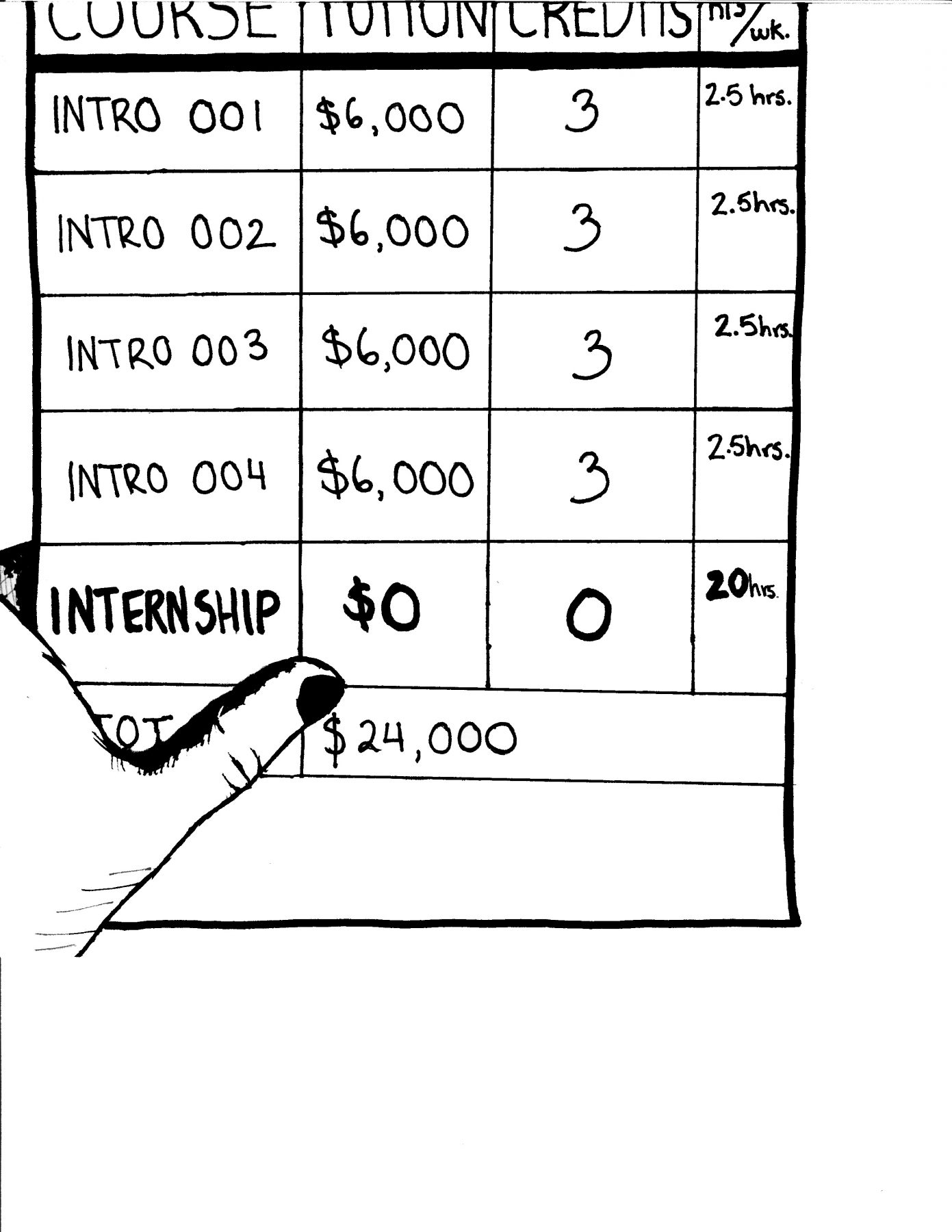
Illustration: Erin Annick
Students Seeking Internships Face Unncessary Institutional Barriers
For many prospective Georgetown students, the Hilltop’s proximity to D.C.’s corridors of power—and the resultant internship opportunities—is a major selling point. Indeed, part of the enduring appeal of a Georgetown education is that it facilitates entrée into the warren that is the federal government.
There’s is a semi-explicit expectation that Hoyas must intern before they graduate if they are to stand a chance in that far-off land called the “real world.” The university does little to discourage this, though students are, of course, told that they don’t need to pursue internships during the academic year. The sad truth is that internships are an increasingly unavoidable hurdle in the race we undergraduates run.
Georgetown does offer students a wealth of resources to aid them in finding and securing internships. We’ve all received emails, for instance, alerting us to openings in the offices of our Congressional representatives. However, the university does a laughably poor job of supporting those Hoyas who make the decision to intern during the academic year.
In the College, MSB, and SFS, students are typically able to earn just one credit for their internships—many of which consume 20-30 hours per week—if and only if they enroll in an extra class that entails regular assignments and meetings. For part-time students, or those taking more than 20 credits during the semester, this class runs an extra $2000, which comes on top of expenses related to interning, like food and transportation. An obvious discrepancy exists between the effort students expend and the curricular benefit they receive from the university. This should change.
There are, of course, exceptions to this general pattern. Certain departments in the College—namely anthropology, government, and journalism—offer three-credit seminars that are meant to accompany internships related to those majors or minors. Additionally, across Georgetown’s undergraduate schools, students are also allowed to propose faculty-sponsored “intellectual reflections” to accredit internships. Doing so, however, means going up against bureaucratic inertia, which can thwart all but the most perseverant Hoyas.
As a result of these internship policies, many students either forgo interning altogether, which can harm their career prospects, or intern for no credit at all, which is patently unfair given all that they learn “on the job”—not to mention the time they spend working.
What’s worse is that some internships require students to receive school credit in order to comply with labor laws, so Hoyas who can’t accommodate a sixth class may find themselves ineligible for certain opportunities through no fault of their own.
There is a better, fairer way—and it can be found right here on campus, already in practice and working. The NHS, which requires all of its undergraduate majors to intern at least once over the course of their studies, gives internships the same weight as most classes, meaning student interns can take one less course instead of one more. This model provides Hoyas with the flexibility to pursue the kinds of hands-on experiences that today’s economy expects of graduates. The rest of Georgetown must take note.







